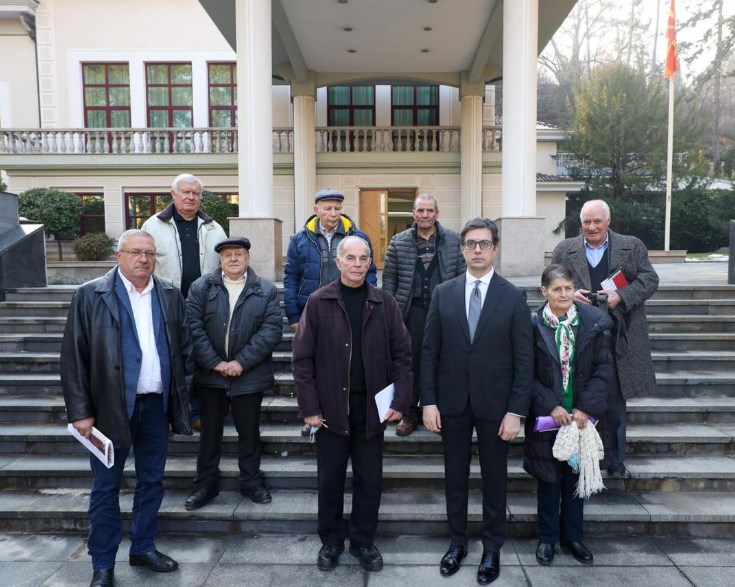President Stevo Pendarovski said that he did not give any assurances to the representatives of ethnic Macedonians from Bulgaria, that he will represent their demands and help them improve their position in Bulgaria. Pendarovski’s meeting with representatives of OMO “Ilinden” – Pirin and other organizations caused angry reactions from Bulgaria, its Foreign Ministry, President and members of its Government, who deny the existence of the Macedonian minority. Pendarovski today tries to explain himself and insisted that he is respecting the 2017 Zaev – Borisov treaty since he gave no promises to the Macedonian representatives.
To their direct question, I gave an equally direct response. That I want to hear their problems, I will meet them in the future if they have need of that, but I told them not to expect me to make demands from the Bulgarian institutions, the Government, the state, the courts.. That is because the Bulgarian institutions are in charge of the Bulgarian citizens in the Republic of Bulgaria. And if they are not satisfied with how their human rights and liberties are respected, there are international institutions, which have already reached a dozen of sentences, Pendarovski said.
The Zaev – Borisov treaty bans both countries from engaging over minority rights issues. But it does allow both countries to stand up for the rights of their dual citizens who live in the other country – this clause was a key Bulgarian demand, since Bulgaria has issued over 100,000 dual citizenships in Macedonia, while the number of Bulgarian citizens who also hold a Macedonian citizenship is miniscule.
This arrangement is in line with the 2017 treaty. I’m in charge of the Bulgarians who live here, as are the Macedonian Government, courts and institutions. If the Bulgarians in Macedonia are not satisfied with me, in us, they can go turn to Strasbourg. That’s the rules, Pendarovski added.
Pendarovski’s meeting with Macedonians from Bulgaria, that came after meetings Bulgarian President Radev had with Bulgarians from Macedonia, is causing problems for the push by the Kovacevski and Petkov governments, who are trying to open multiple new lines of cooperation in an attempt to get Bulgaria to lift its veto against Macedonia’s EU accession talks by summer.




Comments are closed for this post.